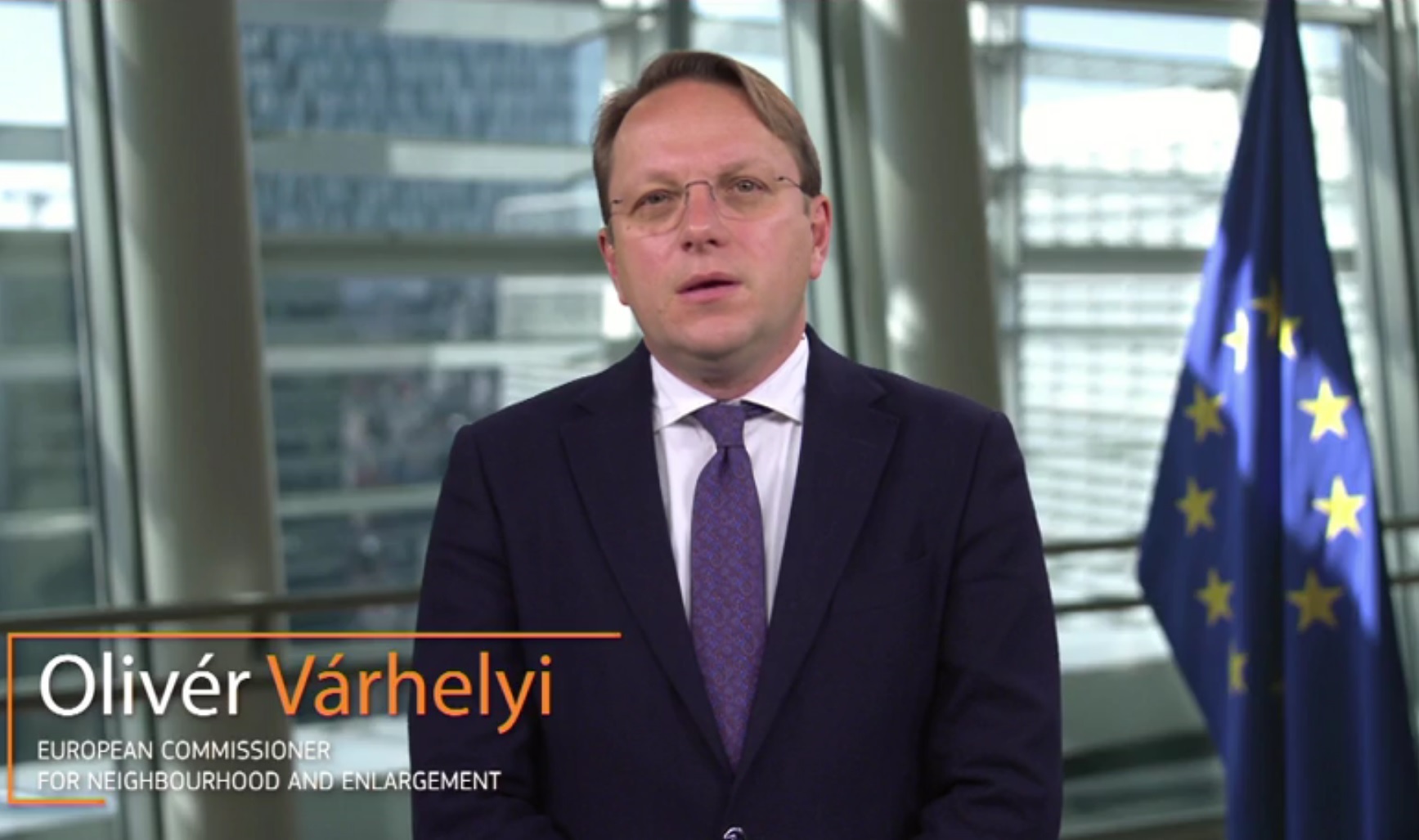Conference organised by the University of Mostar on 18 March 2021 in Neum, Bosnia and Herzegovina
Dear students, dear participants, it is my pleasure to address you today.
The Western Balkans are a priority for the European Union. We share the same history, the same destiny and it is in our strategic and security interest to bring the region into the EU. The future of the Western Balkans is a geo-strategic question and our common responsibility. It is only EU membership than can create long-term peace, security and prosperity.
25 years after the Dayton Peace Agreements, it is clear that the time has come for Bosnia and Herzegovina to move on. By applying for the membership in the European Union in 2016, Bosnia and Herzegovina made a historic step, but also asked to be considered seriously as a future Member State.
The 14 key priorities from the Commission Opinion adopted in May 2019 provide a clear roadmap of reforms, encompassing democracy and functionality, the rule of law, fundamental rights, and public administration reform. Political leaders must put all efforts in the work to deliver on these key priorities if they want to move towards candidate status and the opening of EU accession negotiations.
In February, the Mostar city council elected a new mayor, for the first time since 2008. This is a first clear deliverable on the 14 key priorities. It should be the starting point to address all outstanding deep reforms ahead of the 2022 elections, including issues of constitutional reform.
As other EU candidate countries before it, Bosnia and Herzegovina will need to amend its Constitution to comply with the requirements of EU membership.
This means ensuring equal representation to all in the country. It also means ensuring the functionality of state institutions, so that they are able to effectively participate in EU decision-making and to fully implement and enforce the EU acquis.
Changes are necessary to ensure that the institutional framework of Bosnia and Herzegovina fits with European standards. These are challenging tasks, but Bosnia and Herzegovina is not alone. The European Union will continue to facilitate and contribute to these discussions in the country towards this goal.
In parallel, work will need to continue on all the 14 key priorities, including rule of law and especially on judicial reforms.
The judiciary requires urgent reform, to restore citizens’ trust. A robust system of verification of asset declarations of members of judiciary, together with basic integrity measures are long awaited.
I made a promise to the Trio Presidency when they came to Brussels last September: I am ready to deliver, if they deliver! We can advance to candidate status, if they deliver the necessary reforms!
The situation on migration also requires a new approach and action on the ground. After the humanitarian crisis created by the inaction of decision-makers over the winter break, the situation in Lipa is now stable, but not sustainable. We are mindful also of the security concerns of the local communities. Therefore, we propose a solution that meet their needs and concerns, and also our European standards. Bosnia and Herzegovina should be fully able to manage the number of migrants, also given the substantial EU financial and technical assistances it received. What is missing are political decisions.
Bosnia-Herzegovina needs a much more effective migration and asylum policy: external borders should be protected, border procedures should be applied to all arrivals, all arriving should apply for asylum and only those who are eligible should be let into the territory. Non-eligible applicants or those not even applying for asylum should be returned to their country of origin. This is the system foreseen for the EU Member States and this should be the system for candidate countries as well. We are ready to help Bosnia and Herzegovina to get this done.
Bosnia and Herzegovina also needs to take concrete steps to promote an environment conducive to reconciliation in order to overcome the legacies of the war. We expect political leaders to lead by example by acknowledging the established facts from the conflict. Revisionism, denial of war crimes and genocide, and glorification of war criminals contradict the most basic EU values.
On all these issues, the EU is working alongside its partners in the international community, including the US and NATO. Our cooperation is embodied in the EU military mission, EUFOR Althea, which since 2004 is in Bosnia and Herzegovina with an executive mandate from the UN Security Council to support the authorities in maintaining a safe and secure environment in the country. Althea is also the only ongoing EU military mission under “Berlin Plus” arrangements, which can rely on NATO assets and capabilities.
Finally, let me stress that we continue to stand by Bosnia and Herzegovina, both when it comes to the fight against COVID19 and in support of the post-pandemic recovery. Last autumn we have put forward a large-scale Economic and Investment Plan for the Western Balkans, mobilising up to 9 billion euros in grants and leveraging additional 20 billion euros in investments. This plan will boost the socio-economic development of the region, including Bosnia and Herzegovina. It will also support the recovery and speed up the convergence with the EU, thus bringing direct benefits to the citizens.
To the students of the University of Mostar, the academics and scientists who attend this conference today, let me tell you this: the future of Bosnia and Herzegovina and of the whole Western Balkans region lies in the European Union. Only you can build your own future. The EU will continue to be at your side in the effort towards building a modern, democratic, prosperous and European Bosnia and Herzegovina.

